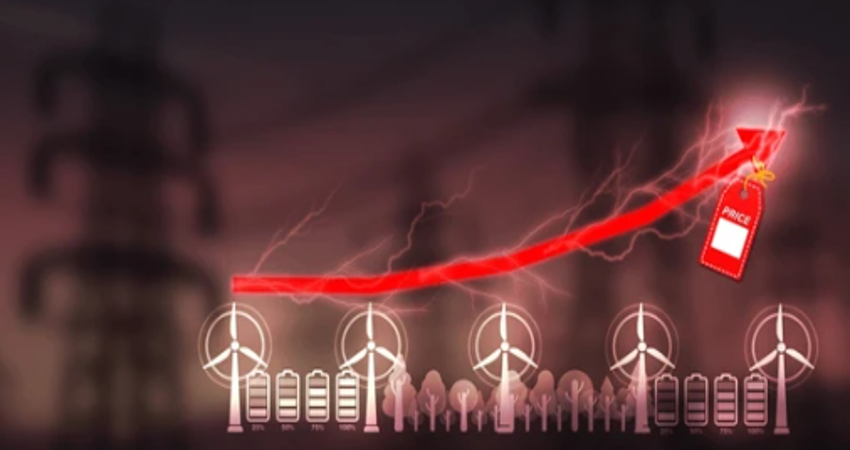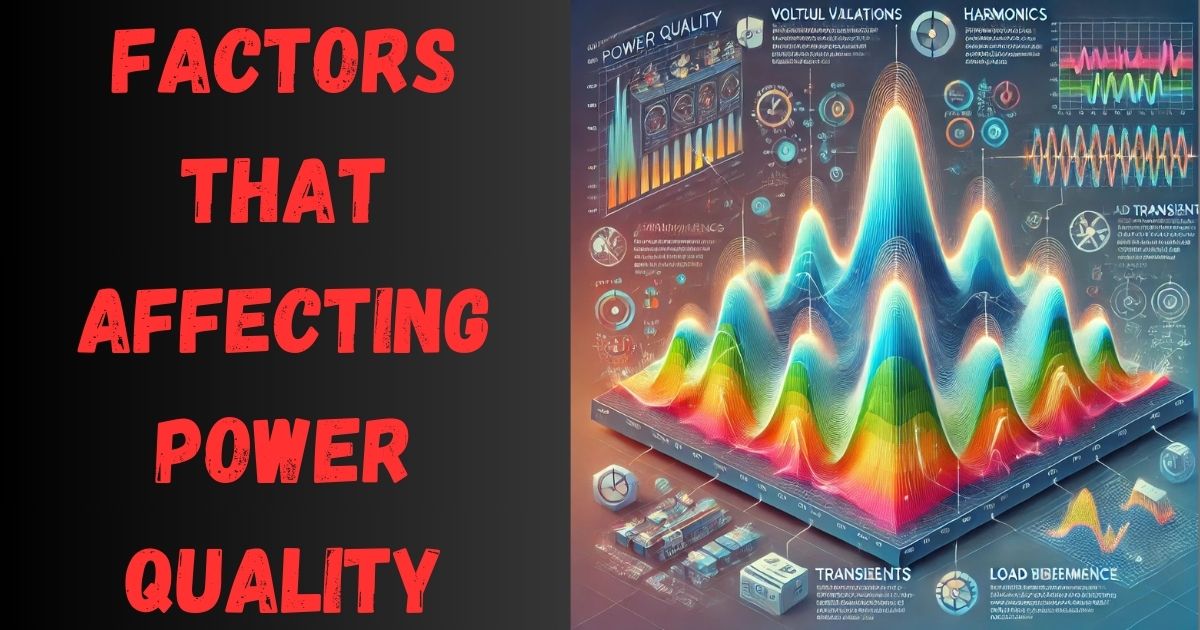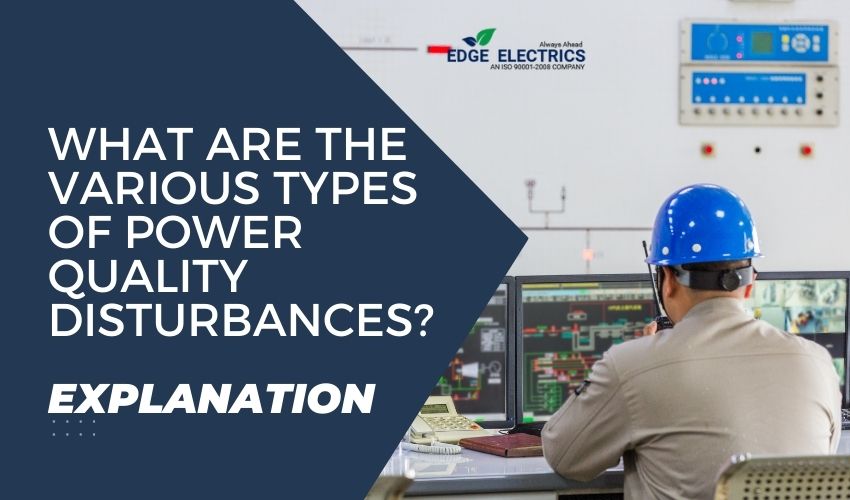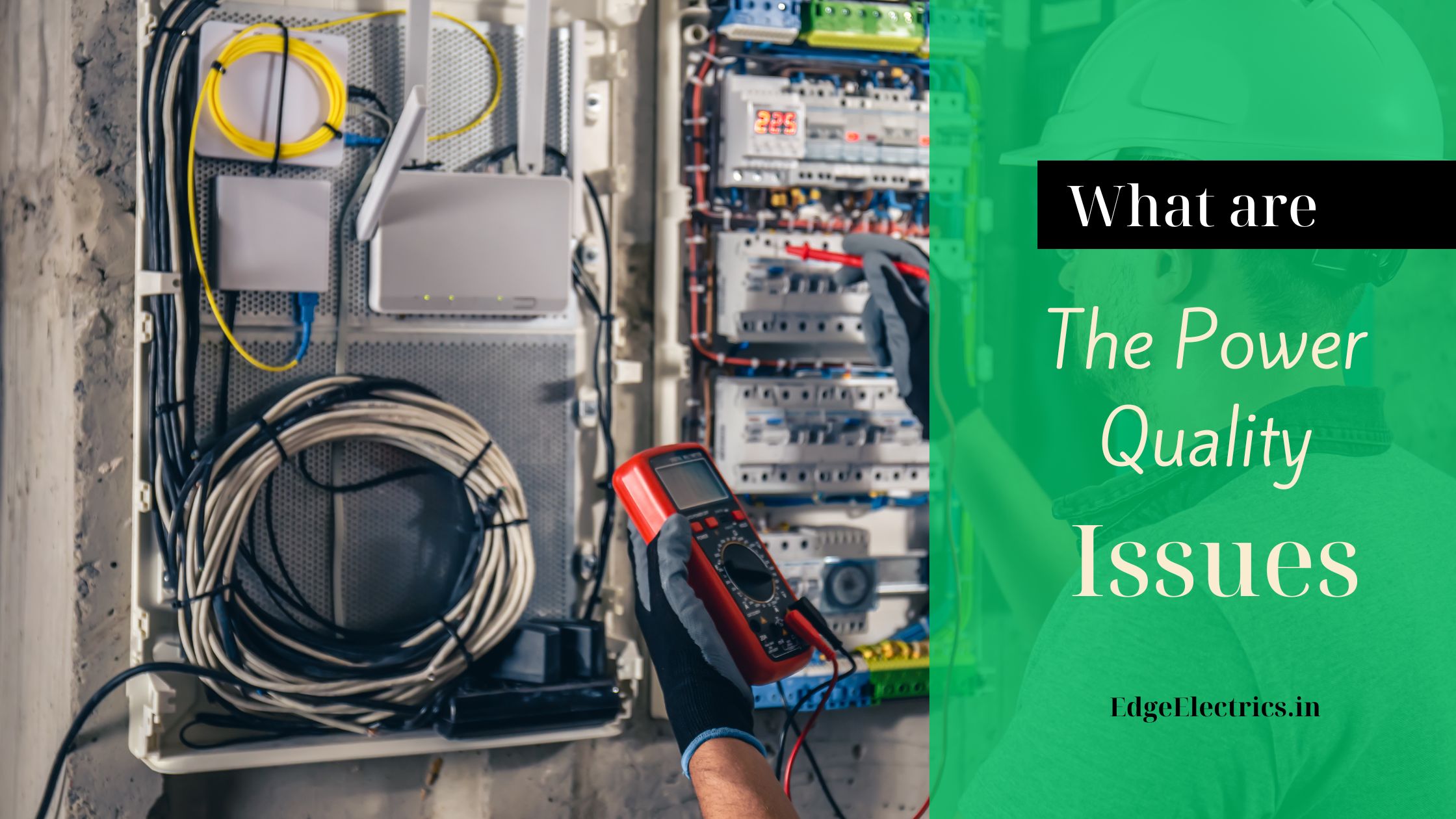
We need to understand the factors that affecting power quality. Power quality is a critical characteristic of electrical systems. That directly influences the efficiency, reliability, and safety of equipment and operations. Poor power quality can lead to equipment failure, increased energy costs, production downtime, and even safety hazards.To help businesses, industries, and energy users implement corrective measures to improve it.
In this article, we’ll investigate the key factors affecting power quality and their potential impact on electrical systems.
Factors That Affecting Power Quality

1. Voltage Variations
For instance sags, swells, Voltage variations, and dips, are among the most common reasons for power quality issues.
Voltage sag: A temporary drop in voltage levels, typically caused by heavy loads like motor startups or short circuits. Sags can cause equipment malfunction, especially in sensitive devices like computers and control systems.
Voltage swell: An enhancement in voltage, which can arise when large loads are detached from the system all of a sudden. Swells can cause damage to sensitive equipment, shorten the lifespan of appliances, and cause overheating.
Voltage dips: Short drops in voltage, often caused by sudden changes in electrical demand or faults in the power grid. They can interrupt sensitive equipment and cause process disruptions.
2. Harmonics
Harmonics are electrical currents or voltages at frequencies that are multiples of the fundamental frequency (usually 50 or 60 Hz). They are typically generated by non-linear loads for instance variable speed drives, inverters, and electronic devices.
Harmonics can lead to several issues:
- Overheating of transformers, motors, and capacitors.
- Increased losses in electrical systems.
- Interference with communication systems.
- Premature ageing of equipment.
To mitigate harmonic distortion, harmonic filters and proper grounding are often compulsory.
3. Power Factor
The efficiency with which electrical power is converted into useful work output is called power factor. A low power factor indicates poor efficiency causes higher energy consumption and enhanced costs.
Common causes of low power factor include:
- Inductive loads like motors and transformers, which consume more reactive power.
- Capacitive or resistive loads that can distort the power waveforms.
Correcting power factor typically involves the use of capacitor banks or power factor correction devices, which can aid reduce energy losses and develop overall system performance.
4. Transient Disturbances
Transients are sudden, short-duration enhanced in voltage or current, typically occurring by lightning strikes, switching operations, or faults in the electrical system. These disturbances can have severe consequences on sensitive equipment, leading to:
- Equipment failure or malfunction.
- Data corruption or loss in digital devices.
- Damage to insulation and circuit components.
Installing surge protection devices and transient voltage surge suppressors (TVSS) can help protect against these harmful surges.
5. Imbalance in Phases
In a three-phase power system, phase imbalance is caused when the voltage or current in one phase is significantly higher or lower than in the others. Phase imbalance can be occurred by uneven distribution of loads, faulty transformers, or poor connections.
The effects of phase imbalance include:
- Overheating of motors, leading to premature failure.
- Decreased system efficiency and increased energy costs.
- Reduced lifespan of equipment.
To figure out phase imbalances, it is crucial to monitor and balance the loads across all phases of the electrical system.
6. Poor Grounding
Grounding is important for the safety and reliability of electrical systems. Poor or improper grounding can cause several power quality issues, including increased susceptibility to transients, harmonics, and voltage fluctuations.
Key impacts of poor grounding:
- Increased risk of electrical shock and fire hazards.
- Higher noise levels in electronic systems, leading to malfunction.
- Reduced protection against surges and lightning strikes.
Proper grounding techniques and regular maintenance are vital to ensuring a stable electrical system and improved power quality.
7. Load Variability
Sudden changes in load demand like starting or stopping large machinery, can cause power quality issues. Rapid fluctuations in demand can result in voltage sags, swells, or even temporary outages.
To mitigate the effects of load variability, energy storage systems (such as batteries) and soft-start mechanisms for large equipment can be used to smooth out demand changes and maintain a stable power supply.
8. Environmental Factors
External factors like temperature, humidity, and pollution can also affect power quality. Extreme environmental conditions can cause electrical insulation to degrade, increase the likelihood of short circuits, and occur equipment malfunctions.
Proper maintenance of electrical equipment and installing environmental controls can assist mitigate the effects of environmental factors on power quality.
Conclusion
Maintaining high power quality is significant for confirming the reliable and efficient operation of electrical systems. The factors that affecting power quality for example voltage variations, harmonics, poor grounding, and environmental condition can have remarkable effects on equipment performance, energy efficiency, and safety. By understanding these factors and implementing corrective measures, businesses and industries can decrease downtime, lower energy costs, and extend the lifespan of their electrical infrastructure.
Investing in power quality monitoring and corrective solutions is crucial to staying ahead of potential issues and ensuring the long-term success of your operations.
continue reading
Related Posts
Power Quality Disturbances are voltage sags, swells, spikes, fluctuation and […]
Maintaining Good Power Quality includes several important characteristics such as […]
Ensuring good power quality is crucial in electrical systems. As […]



